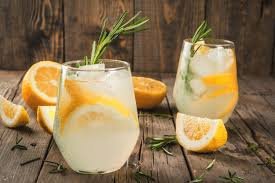Unraveling the Detox Drink Enigma: Truths Behind the Trendy Tonic
Peeling Back the Layers of Detox Drinks
People eagerly embrace detox drinks as a modern shortcut to purge toxins and revitalize their systems. These beverages typically blend water with an array of ingredients like citrus fruits, leafy greens, or herbal extracts, marketed as potent cleansers for the liver and kidneys. Popular options include cucumber-mint infusions or beetroot blends, often showcased by influencers promising glowing skin and boundless energy. Retailers push these products as must-haves, especially during post-holiday cleanses or fitness kicks.
However, the origins trace back to traditional herbal medicine, now repackaged with a sleek, commercial twist. Transitioning to today’s landscape, social media amplifies their appeal, with viral recipes and before-after photos flooding feeds. Consumers flock to them for convenience, expecting rapid results without altering diets or routines. Beneath the hype, though, lies a need to explore whether these drinks deliver on their bold promises.
The Body’s Natural Detox Mastery Unveiled
Your body tirelessly executes detoxification through a network of organs designed for the task. The liver transforms harmful substances into excretable forms, while the kidneys filter blood to expel waste via urine. Additionally, the skin releases toxins through sweat during exercise, and the lungs clear impurities with every breath. This self-sustaining system operates seamlessly, adapting to daily exposures from food and air.
Furthermore, the digestive tract plays a crucial role, breaking down nutrients and eliminating residues efficiently. Transitioning to lifestyle factors, adequate hydration and rest amplify these processes naturally. Scientists affirm that this built-in mechanism handles toxins effectively, questioning the necessity of external aids like detox drinks. In active harmony, your body maintains equilibrium, rendering supplemental cleanses largely redundant.
Sifting Through the Evidence on Effectiveness
Researchers diligently examine detox drinks, yet studies consistently reveal a lack of robust evidence supporting their toxin-eliminating claims. A 2017 analysis in the Journal of Dietary Supplements finds no significant advantage over regular water in detoxifying the body. Moreover, clinical observations note that any weight loss stems from water loss, not fat reduction, fading quickly after cessation. Experts highlight that perceived benefits often reflect placebo effects or improved hydration.
Additionally, investigations into specific ingredients, like lemon or ginger, show nutritional value but no unique detox properties. Transitioning to broader insights, health authorities like the World Health Organization caution against unverified claims, citing insufficient trials. Furthermore, a 2020 study on juice cleanses indicates temporary bloating relief but no long-term health gains. In active pursuit of clarity, science urges consumers to approach these products with skepticism.
Dispelling Detox Drink Fallacies with Facts
Marketers aggressively promote the idea that detox drinks sweep away all toxins in days, but evidence contradicts this. One common fallacy claims they reset metabolism for weight loss, yet no data supports sustained fat reduction beyond initial water shedding. Another myth suggests they cure chronic conditions, a notion health experts actively debunk as misleading. Consumers often overlook that these effects mirror basic hydration benefits.
Moreover, the belief that detox drinks outperform a balanced diet in cleansing lacks foundation. Transitioning to reality, authorities clarify that over-reliance risks nutrient gaps or digestive strain. Professionals actively dismantle these myths, emphasizing that whole foods and exercise outshine quick fixes. This knowledge empowers individuals to sidestep costly, unproven trends and focus on proven wellness strategies.
Weighing the Pros and Cons of Detox Regimens
Detox drinks actively offer some advantages by encouraging higher fluid intake, which supports kidney function and skin health. Ingredients like berries provide antioxidants, potentially reducing inflammation when consumed regularly. Additionally, herbal additions such as dandelion may promote mild diuretic effects, aiding water balance. These subtle perks make them appealing as flavorful hydration alternatives.
Conversely, risks arise when people replace meals with these beverages, leading to caloric deficits or electrolyte imbalances. For instance, prolonged use of high-sugar juice cleanses can spike blood glucose, posing challenges for diabetics. Transitioning to safety concerns, excessive consumption might overburden kidneys or cause nausea. Health experts actively advise moderation, noting that benefits rarely exceed those from a varied diet. Balancing these factors ensures a safer approach to wellness.
Exploring Sustainable Alternatives for True Detox
Individuals actively adopt whole-food diets to support natural detoxification more effectively than any drink. Loading up on fibrous vegetables, lean proteins, and healthy fats nourishes organs like the liver and kidneys naturally. Moreover, regular movement, such as walking or yoga, boosts circulation and sweat, enhancing waste removal. This strategy outperforms fleeting detox trends by fostering lasting health.
Additionally, herbal teas without additives offer gentle hydration benefits, aligning with some detox goals minus the risks. Transitioning to personalized care, consulting a nutritionist tailors plans to individual needs. For those pondering does detox drinks really work, reliable resources shed light on evidence-based options. Ultimately, these practices build resilience, outshining temporary cleanses with sustainable vitality.
Embracing an Informed Path Forward
Trends evolve as awareness grows, pushing companies to align with scientific standards rather than hype. Researchers actively explore natural compounds’ roles in health, though definitive proof for detox drinks remains elusive. Furthermore, public demand for transparency shapes a shift toward holistic wellness practices. This progression guides consumers away from unverified elixirs.
However, challenges persist with unregulated products flooding markets, risking misleading claims. Transitioning to solutions, education campaigns highlight evidence, encouraging balanced routines. In active pursuit of health, individuals prioritize lifestyle over quick fixes. This forward-thinking approach cultivates genuine well-being, navigating the detox landscape with confidence.






